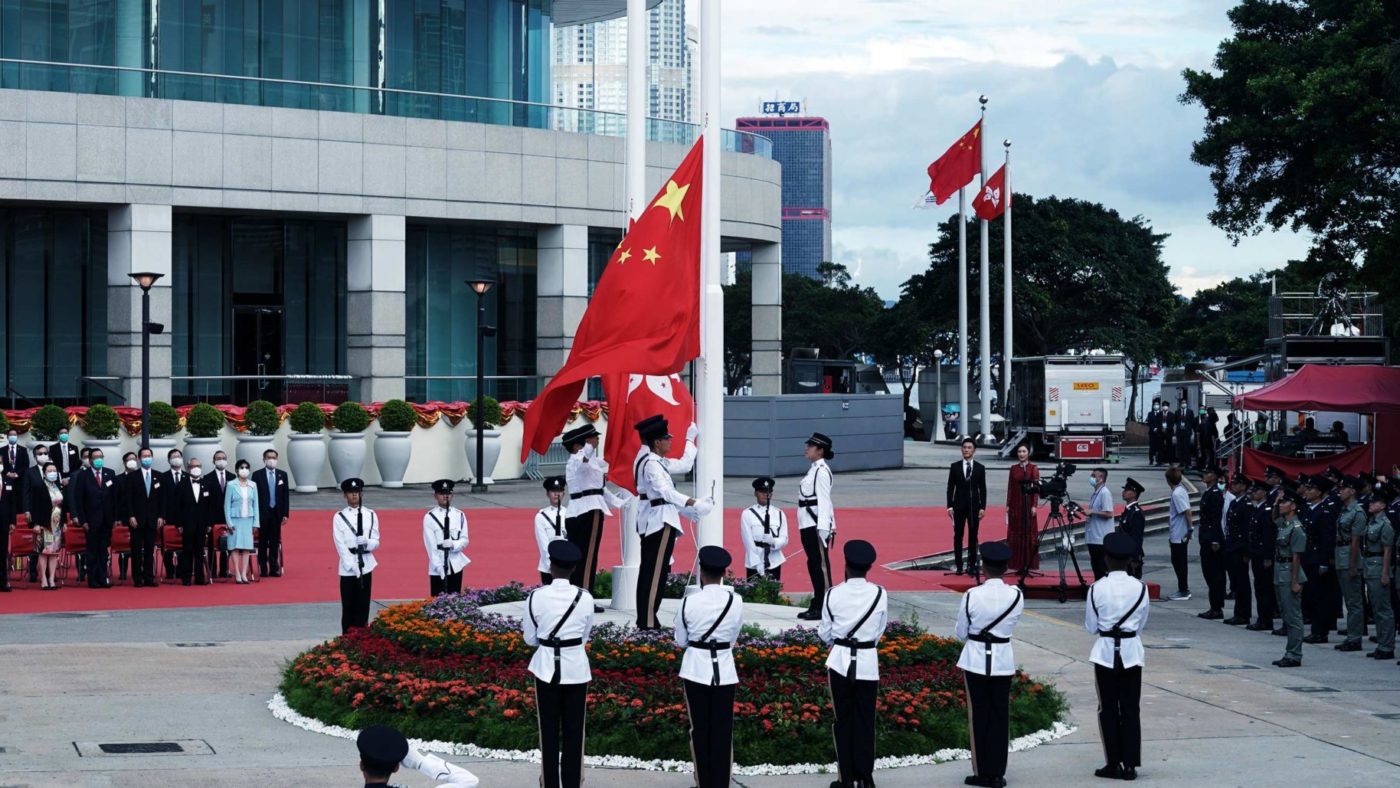At the height of the protests in Hong Kong there were fears that the Xi administration would send in the troops, that we might see a 21st century rerun of Tiananmen Square.
But Beijing is not so stupid. The last thing it wants is images of chaos and bloodshed to be sent around the world. Its solution to what it sees as the problem of Hong Kong has therefore been administrative. The new National Security Law came into force at 11pm last night, and criminalises a wide range of ‘subversive’ activities (in effect making it easier to punish the slightest form protest). With Beijing having sole control over how the law is interpreted, it has legally, publicly, and effectively killed Hong Kong.
No matter that Hong Kong’s rights and freedoms were guaranteed for 50 years from 1997 under the Sino-British Joint Declaration of 1984. That was publicly torn up years ago, when China forbade British parliamentarians from visiting the Special Administrative Region in 2014. Since then Chinese officials have repeatedly asserted that as sovereignty returned to China in 1997, the agreement is null and void. Chinese foreign ministry spokesman Zhao Lijian, for example, said the Declaration was a “unilateral policy announcement by China, not a promise from China to the UK, even less a so-called international commitment”.
The National Security Law was foisted on Hong Kong, in defiance of the terms of the Declaration, under which:
“rights and freedoms, including those of the person, of speech, of the press, of assembly, of association, of travel, of movement, of correspondence, of strike, of choice of occupation, of academic research and of religious belief will be ensured by law in the Hong Kong Special Administrative Region”. (The constitution of the mainland has similar worthless pledges and guarantees).
Even more cynically, the text of the new legislation was not released until after it had already become law. Reading it spelled out all of Hongkongers’ worst fears. Its provisions are incredibly broad and give the Hong Kong government ample power to clamp down on whoever it likes.
Article 20 defines “altering by unlawful means the legal status of the Hong Kong Special Administrative Region or of any other part of the People’s Republic of China” as an offence. That means working towards a democratic Hong Kong is now illegal. The favourite catch-all offence of “subversion” criminalises “overthrowing or undermining the basic system of the People’s Republic of China” (emphasis added); and “seriously interfering in, disrupting, or undermining the performance of duties and functions” of the governments of the mainland or Hong Kong. So strikes are illegal now. “Terrorist activities” are similarly loosely defined, with offences listed including “sabotage of means of transport”. So you can now get busted for holding up traffic.
Naturally, since unnamed “foreign powers” have largely been blamed for inciting the protests, external relationships are harshly penalised. Per Article 30: “A person who conspires with or directly or indirectly receives instructions, control, funding or other kinds of support from a foreign country or an institution, organisation, or individual outside the mainland, Hong Kong and Macao of the People’s Republic of China to commit the offences… shall be liable to a more severe penalty”. That’s any foreign organisation or individual. It’s now dangerous for Hongkongers to speak to foreign media or NGOs, just like it is in the mainland.
Most ominous of all is Article 38 on the scope of the law. “This Law shall apply to offences under this Law committed against the Hong Kong Special Administrative Region from outside the Region by a person who is not a permanent resident of the Region.” This gives extraterritorial power to China to use against anyone committing offences, no matter where they live. All visitors to China and Hong Kong must thus beware. This is not an idle threat. A Chinese student who tweeted memes about Xi Jinping from an anonymous account when in Canada was arrested when visiting his family in the mainland.
The response from Hong Kong civil society has been grimly inevitable. Democratic campaign leaders such as Joshua Wong, Nathan Law and Agnes Chow have resigned, while groups such as Demosisto and the Hong Kong National Front have announced their closures. Dozens of social media accounts have disappeared. Yet even today thousands still marched through the city protesting against the new law. Meanwhile the Communist Party paper, the People’s Daily, has tweeted that over 180 people have been arrested, including seven for defying the National Security Law. There’s no need to send in the troops. Campaigners can be picked off according to the law.
In one sense it does not matter what, exactly, the National Security Law states. It is a simple, brutal, assertion of the power of the mainland over Hong Kong. Beijing has struck against the one area over which it governed which still guaranteed some freedoms. Xi does not believe in contested areas. The unity of China, the party and the people is his ceaseless watchword.
He fears becoming the Chinese Gorbachev: the man seen as losing the battle of ideas with the West and so overseeing his nation’s collapse. Xi’s entire approach to governing has been about emphasising the ideological battle between China and the West. No dissent is permitted, no liberties may be taken. This is a new Cold War, a form of ideological and diplomatic autarky in which China has chosen its path. The time has come for others to consider their own response to the tragic conflict of loyalties with which Hong Kong is having to wrestle.
Click here to subscribe to our daily briefing – the best pieces from CapX and across the web.
CapX depends on the generosity of its readers. If you value what we do, please consider making a donation.


